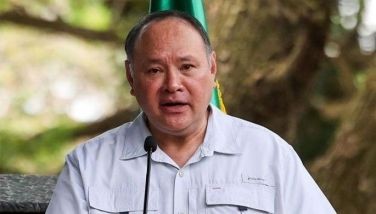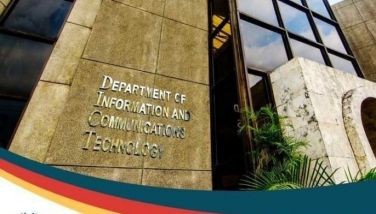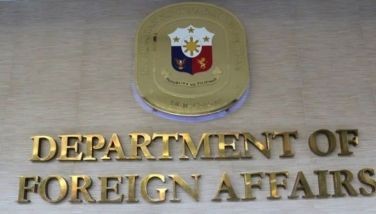Travel with purpose begins in Phl
MANILA, Philippines - Make. Create. Innovate. These words may sit more commonly with the thriving business hubs of the US or Japan and yet, thanks to Filipino-American entrepreneur Bryan Benitez McClelland, today they can also apply to the sleepy, rural town of Victoria, Tarlac.
Bryan arrived in the Philippines seven years ago as a student of the University of Pennsylvania (UPenn): “I was studying environmental resource management at the time, with a focus on sustainable community development. As a student in the US I had heard of Gawad Kalinga (GK), and so I actually arrived here to help create GK’s Green Building Manual for Gawad Kalinga. I was supposed to stay here six months, but I haven’t left ever since because I discovered an area brimming with such immense human and natural potential. That’s when I had the idea – let’s make the greenest bikes on the planet!”
Bryan is the entrepreneur behind Bambike, a socio-ecological enterprise that makes quality, hand-made bicycles from one of the Philippines most abundant – and yet underused – resources, bamboo. In addition to using sustainable building practices, all Bambike builders come from the local Tarlac GK community: “Other than being a beautiful, functional piece of art that you can ride around, each one of these bikes has a story behind it. Each one takes several months to assemble, so we have tried to involve and upskill the local community so that the effects can be felt for as many families in the community as possible.”
Bryan had obtained a Master’s degree from one of the world’s most iconic, prestigious universities, which presumably offered him a passport to lucrative employment in the ultra-modern, prosperous US economy. I am curious, therefore, to understand just what appealed to him about starting his business here in the Philippines.
‘Endless possibilities’
“Unlike in a developed economy, where so many markets are saturated, the possibilities here in the Philippines are endless. In particular, I was attracted by the opportunity to start something new and to do business differently – in a way which can have a really positive influence on society. Bambike was started, therefore, with the triple bottom line in mind – that of people, planet and progress.”
In particular, Bambike has been inspired by the spirit of walang iwanan and bayanihan – values which not only embody the GK Tarlac community, but have inspired over a million volunteers nationwide to get behind GK’s vision to end poverty by 2024: “We have programs that include scholarships, sponsoring a preschool teacher, and a weekly feeding program for children, as well as a bamboo nursery for reforestation. This is the beauty of being in a developing country: because you are starting pretty much from scratch, you find many opportunities to shape the future,” Bryan explains.
The ‘endless opportunities’ Bryan talks of have now inspired him to set up Bambike Ecotours, a social enterprise which offers tours of Intramuros as seen from a Bambike: “One of the nicest ways to explore many cities across the world is by bicycle, and so I felt there was a gap in the market for a bike tour in Manila. So, for me it was a logical next step for Bambike to launch Bambike Ecotours.”
Metro Manila may not seem to be a particularly bike-friendly city, and yet the tours have already attracted a considerable following in the short time they have been running. Indeed, Bambike Ecotours ranks third among the top “Things to do in Manila” category of Trip Advisor: “Intramuros is actually really conducive to bike riding and cultural tourism, especially since the Intramuros Administration had been doing a good job in thinking about the future of the walled city strategically, including bicycle provisions and infrastructure in their plans. We will look to expand Bambike Ecotours to other tourism destinations in the future,” Bryan says.
Growing tourism, developing communities
Tarlac is not the only quiet, underdeveloped rural town in Northern Luzon which has, in recent years, seen a revival. In 2011, surf enthusiast Raf Dionisio and his friend Ziggie Gonzales arrived in San Felipe, Zambales intent merely on catching some waves: “San Felipe is known as a great surf spot - just a three-hour trip from Manila - and yet when we arrived we were shocked that the area had barely any accommodations for surfers. As a result, people only came at weekends, and just to surf, staying the shortest time possible. The small food kiosks and local surf schools and shops managed to get a few customers on Saturdays and Sundays, but no one really came during the week. Business and life were slow, and people really struggled to make ends meet.”
Raf and Ziggie then had the idea of establishing the Circle Hostel – a simple, affordable beach-inspired bamboo hostel for backpackers and surf enthusiasts. Now in its third year, the hostel has grown steadily and today forms an integral part of a local community which is gradually beginning to thrive from tourism.
Raf explains: “We both had no experience in managing resorts when we started, and the entire process has been a learning curve ever since. But one philosophy we were clear about was that we didn’t want to go in and isolate ourselves from the rest of the community – we wanted them to grow with us.”
One of the decisions Raf and Ziggie took was not to sell food and other basic amenities on site, nor to hire their own surf instructors: “We were new to the community, and wanted to partner with our neighbors so that everyone had a chance to make money. We could earn on accommodations, while others could earn from everything else the surfers spend money on. We wanted our guests to go out and discover the many things this community has to offer.”
Raf tells me that while an average tourism enterprise may take around 80 percent of all customer spending, the Circle takes only 30 percent and redistributes the rest in the local community. “We decided to do business in this way not because we lack ambition, but because we see the entire community as one big resort from which we can all benefit. Today, all businesses in the area have increased their menus, reinvested in infrastructure and grown their establishments, in large part because the Circle is bringing more people to area. As a result, there is more to do for our guests, who also feel safe because they sense that the community around them is happy. This is the magic of solidarity - it starts with treating everyone as a friend and leaving no one behind, and it ends up being good for everyone.”
Phoebe, a local store owner, explains how the community is beginning to embrace this different approach to doing business: “In the past, we often used to fight among ourselves over how much profit we could get out of local events. But since the Circle has arrived, we have begun to work together more. And, slowly, more and more tourists are beginning to come.”
Raf and Ziggie have already established a second hostel in La Union and, like Bryan, he sees the lack of development of rural areas in the Philippines not as a hindrance but as an opportunity: “There is so much more we can do to maximize the potential of La Union and Zambales. For example, just by developing our own waterfalls tours in both destinations, not only do we offer more reasons for people to visit here, but we also provide more jobs to local surfers during the off season.”
With rural-urban migration continuing unabated, a more inclusive approach to tourism – known as ‘social tourism’ - can play an important role in reversing the worrying trend towards increasingly polluted, congested and unequal cities. After all, while some of the Philippines’ most beautiful areas are also among its poorest, many foreign tourists would relish the opportunity to visit these areas and provide the local communities with much-needed revenue. For now, the missing link, it seems are more adventurous innovators such as Bryan and Raf who have the vision, the means and the courage to bring such transformation into reality.
The Social Business Summit
Join Raf, Bryan and other young change-makers at the Social Business Summit (October 2-4) at the GK Enchanted Farm.
The 2013 Social Business Summit brought together innovators rich and poor, political leaders, multinational company executives, idealistic young students and graduates, small-scale entrepreneurs and skilled professionals, from all around the globe - 500 in all - to meet and learn from each other about how to tackle poverty through the creation of social enterprises.
Join the 500 change-makers this year and be prepared to discover your own passion and purpose.
For more information, visit the website:www.socialbusinesssummit.net.
The author is Thomas Graham, a British journalist who came to the Philippines on a short-term assignment. He has since stayed over two years in the country, volunteering for Gawad Kalinga and other causes. His experiences will be documented in a book: “The Genius of the Poor”, which will also be launched during the Summit.
- Latest
- Trending





























